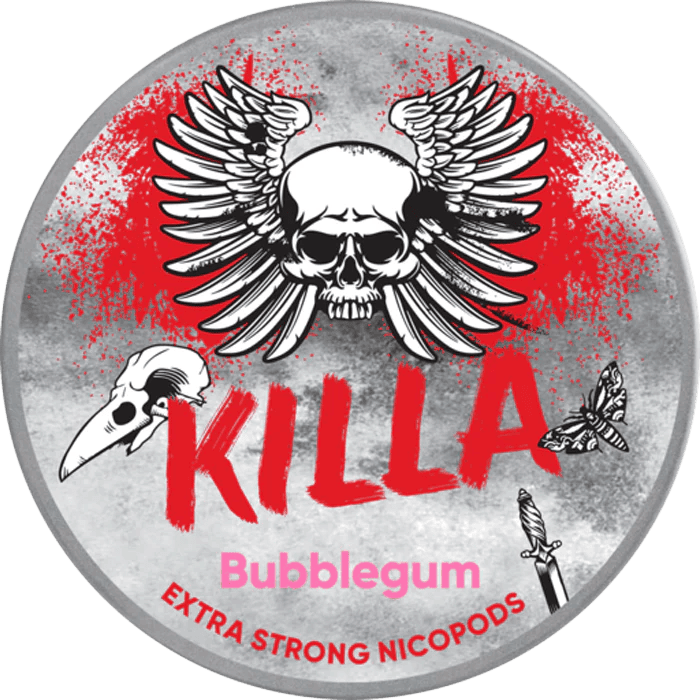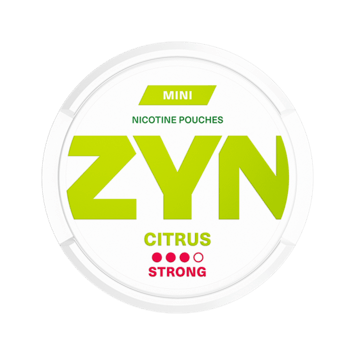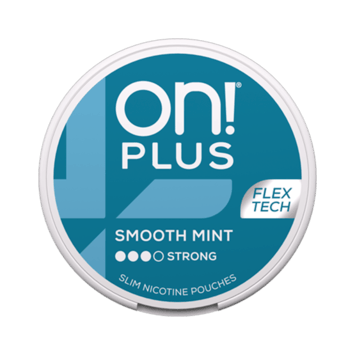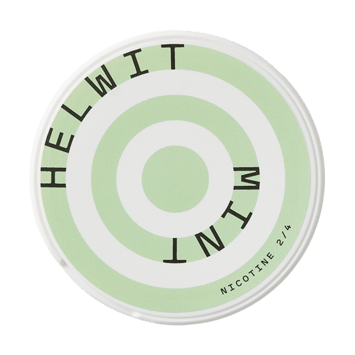How bad are nicotine pouches for you?
Philip Plainstein

Nicotine pouches are seen as a safer choice than smoking or dipping. But, are they really good for your health? Do they help you quit tobacco, or are they just another way to get hooked? We’ll look closely at nicotine pouches and their impact on your health. This way, we can tell the truth from what’s out there.
Key Takeaways:
- Nicotine pouches contain nicotine, water, flavorings, sweeteners, and plant-based fibers, but no tobacco leaf.
- They are marketed as a safer alternative to smoking and dipping, but they are not FDA-approved nicotine replacement therapy.
- Side effects of nicotine pouches can include hiccups, gum irritation, nicotine addiction, sore mouth, and upset stomach.
- Nicotine itself can be harmful to your health, causing heart, lung, stomach, and fertility problems.
- It is recommended to consult a doctor and consider FDA-approved nicotine replacement therapies or other quitting methods before using nicotine pouches.
What are nicotine pouches and how do they work?
Nicotine pouches are small bags with nicotine, water, and various flavours. They also have sweeteners and plant fibres. But, they don’t have any tobacco leaf. This makes them different from regular tobacco products.
To use these pouches, you put one between your gum and lip. This lets nicotine go through the mouth’s skin into the blood. You don’t need to smoke or swallow it. The pouches stay there for about an hour, giving off nicotine slowly.
Nicotine, water, flavours, sweeteners, and plant fibres are the main things in these pouches. People pick them based on how much nicotine they want. This lets them enjoy the nicotine in a controlled way.
Are nicotine pouches safer than other tobacco products?
Nicotine pouches claim to be safer than items like chewing tobacco and snus. They are unique because they have no tobacco. Experts are still unsure about how truly safe or useful they are.
Their safety over many years is unknown. People think without tobacco, they’re less bad. But without big studies or FDA rules, we can’t be sure. The FDA doesn’t watch over nicotine pouches like it does with cigarettes.
Nicotine is the key part of nicotine pouches. It can hurt health and is very hard to stop using. So, even if they seem better than other chewable tobacco, be careful. Remember, the risk is still there because of the nicotine.
To choose wisely about nicotine pouches, talk to a doctor. Keep up with the latest on FDA rules and new studies. It’s also smart to look into ways to quit with the help of FDA-approved methods and advice.
Comparison of Nicotine Pouches with Other Smokeless Tobacco Products
| Smokeless Tobacco Products | Nicotine Pouches |
|---|---|
| Contain tobacco leaf | Do not contain tobacco leaf |
| May carry higher risks due to tobacco-specific nitrosamines and other harmful substances | Can potentially have reduced risks due to the absence of tobacco leaf |
| Regulated by the FDA | Not regulated as strictly by the FDA |
| Long-term effects and safety profile well-documented | Long-term effects and safety profile still uncertain |
The table shows how nicotine pouches and other chewable tobacco differ. It talks about what they’re made of, the risks, the FDA’s role, and research. Even with their possible good points, it’s key to keep in mind the doubts about their safety and use.
As we close, remember nicotine pouches are said to be safer. Yet, make careful choices for your health. Get advice from experts and keep up-to-date with what the FDA says. Look into ways to quit that are backed by science. Thinking ahead for your health is very important.
Do nicotine pouches have any potential side effects?
Nicotine pouches can have some side effects. They claim to be safer than smoking. But, there are risks you should know. Users sometimes get gum problems, mouth sores, and feel sick. You could also get hiccups. Nicotine pouches might lead to addiction. It’s vital to think about these before you use them.
If you notice these effects, talk to a doctor. They can help with any pain or risks. Your doctor might give better ways to stop smoking or needing nicotine. These ways work well and are backed by research.
“Nicotine pouches may cause gum and mouth problems, hiccups, and nausea. Knowing these risks is important. If you’re worried, ask a doctor for help.”
Possible Side Effects of Nicotine Pouches
Here’s what you might feel with nicotine pouches:
- Gum Irritation: Some may feel their gums hurt if they use pouches a lot. This happens from the pouches sitting between the lip and gum often.
- Sore Mouth: Using these pouches a lot can make your mouth feel sore.
- Hiccups: Some people might hiccup more when using these pouches.
- Nausea: Using pouches can sometimes make you feel like throwing up. This usually happens if you’re new to them.
- Nicotine Addiction: These pouches can make you want more nicotine. So, you could become addicted.
Watch how your body reacts to the pouches. If you feel bad, get help from a doctor. People’s reactions can differ. What’s okay for someone might not be for you.
| Side Effect | Description |
|---|---|
| Gum Irritation | Irritation or inflammation of the gums due to the constant use of nicotine pouches. |
| Sore Mouth | Discomfort or soreness experienced in the mouth as a result of using nicotine pouches. |
| Hiccups | Repetitive, involuntary contractions of the diaphragm that can occur after using nicotine pouches. |
| Nausea | Feeling of queasiness or discomfort in the stomach, often accompanied by the urge to vomit. |
| Nicotine Addiction | The risk of developing a nicotine addiction due to the high addictive nature of nicotine present in the pouches. |
Do nicotine pouches increase the risk of cancer?
Nicotine, the main ingredient in nicotine pouches, does not cause cancer directly. But, it may help cancer get worse. Though we don’t have solid proof yet, it’s good to be careful about the possible risks.
“Nicotine acts as a promoter in the development of malignant tumors. It impacts various cellular processes, including cell growth, migration, and angiogenesis, which contribute to cancer progression.” – Dr. Elizabeth Lewis, oncology researcher
We’re still researching if nicotine pouches can lead to cancer. More studies are needed to know for sure. It’s important to be cautious about using them.
Understanding Tumor Promotion
Tumor promotion is complex. Nicotine can change how cells work, helping cancer grow and spread. It doesn’t start cancer, but it makes existing cancers more aggressive.
Nicotine might help tumors by making new blood vessels grow around them. This gives the tumors nutrients they need to get bigger. Nicotine might also mess with cell signals, causing tumors to grow out of control.
The Lack of Direct Evidence
Right now, there’s no direct proof that nicotine pouches cause cancer. But nicotine is still harmful, no matter where it comes from.
To be safe, remember that nicotine pouches aren’t FDA-approved to help you quit. We should choose options that are known to be safe and effective, like FDA-approved methods and support programs.
| Product | Risk of Cancer | Regulation |
|---|---|---|
| Nicotine Pouches | Potential risk due to nicotine as a tumor promoter | Less stringently regulated by the FDA compared to cigarettes and other tobacco products |
| Cigarettes | High risk | Stringently regulated by the FDA |
| Nicotine Replacement Therapies (NRT) | No direct risk | Regulated and approved by the FDA |
Table: Comparison of cancer risk and regulatory status of nicotine pouches, cigarettes, and nicotine replacement therapies. The risk of cancer associated with nicotine pouches is not directly established, while cigarettes carry a high risk and are strictly regulated by the FDA. Alternatively, nicotine replacement therapies have no direct risk and are approved and regulated by the FDA.
There’s no sure link between nicotine pouches and cancer yet. But, it’s always smart to look after your health. Use methods that are known to be safe for quitting nicotine and tobacco.
Are nicotine pouches effective for quitting nicotine dependence?
Many wonder if nicotine pouches help quit nicotine. Yet, they lack data to back their effectiveness. Though seen as safer than smoking, use them with care. Think about proven methods too.
FDA-approved options, like patches and gum, are well-studied. They reduce craving and withdrawal effectively. These methods slowly release nicotine, aiding a smooth break from smoking.
Seek advice from your doctor for a plan that suits you. They can mix therapies, counseling, and maybe meds. A personalised approach is key to quitting successfully.
Quitting nicotine is tough, needing proven ways. With expert help, you’re more likely to kick the habit for good. Don’t rely only on pouches; find what works best for you.
What are the alternatives to nicotine pouches for quitting smoking?
There are several choices for quitting smoking without nicotine pouches. They can help people stop smoking. These options include:
Nicotine Replacement Therapy (NRT) Products
Nicotine replacement therapy (NRT) products help. They include patches, gum, and lozenges. These are proven to work. They give your body nicotine under control. This helps with cravings and feeling bad when you stop. You can choose from many strengths. This lets you slowly use less nicotine over time.
Support Programs
Programs to help you stop smoking can make a big difference. You’ve got things like quit lines, texting help, apps, and groups. They all give advice and help you feel like you’re not alone. They offer many ways and tips to keep you going and beat the tough parts.
“By combining nicotine replacement therapy with support programs, individuals can significantly improve their chances of quitting smoking for good.”
But, talking to a doctor is really important before you start. They can help choose what’s best for you. They will give advice that fits you. This makes quitting more likely to work.
Using more than one method often leads to better results. Everyone’s path to quitting is different. You might have to try a few ways to find what works for you. Yet, with support and not giving up, quitting is very possible. And you can be free from smoking for good.
What are the short-term and long-term effects of nicotine pouches?
Nicotine pouches affect the body in both short and long terms. Short-term users might feel gum and mouth irritation. They might also get hiccups and feel sick. How bad and how long these effects last can change person to person.
The long-term impacts of nicotine pouches aren’t in clear view. With them being new, not many studies have looked at the lasting health effects. This means users should be careful and think well about the risks.
Checking out other options is a good idea, especially if you want to stop using nicotine pouches. FDA-approved methods for quitting nicotine are well studied and known to help a lot of people. It can be a safer path to take.
What other smokeless tobacco products are available?
Aside from nicotine pouches, many other smokeless tobacco products are out there. These include e-cigarettes, snus, snuff, dipping tobacco, and chewing tobacco.
E-cigarettes work by turning e-liquid into vapour, so you get nicotine without smoking. They’re said to be less harmful than regular cigarettes, but we’re not certain about the long-term effects. More studies are needed.
Snus is a moist tobacco that goes under your lip. It’s less risky than smoking but not entirely safe. Those who use it should still be careful of its health effects.
Snuff is finely ground smokeless tobacco meant for the area between the lip and gum. It’s used by sniffing or inhaling the powder. But, let’s not forget, it still comes with health dangers.
Dipping tobacco, or moist snuff, is placed inside the cheek and gum. It’s for folks who want to steer clear of the smoke from typical tobacco. Yet, using it can harm your mouth and raise your risk of oral cancer.
Chewing tobacco involves chewing or spitting out tobacco. It’s not any safer than dipping, leading to oral health issues and a higher chance of oral cancer. Always consider the dangerous effects it can have on your health.
Remember to think carefully about whether to use smokeless tobacco. It’s wise to talk to a doctor before trying it. Quitting tobacco can be tough, but doctors can help you find ways to stop that work best.
What are the evidence-based options for quitting nicotine?
There are good choices for quitting nicotine. They have been proven to work. One is nicotine replacement therapy (NRT). This includes items like patches, gum, and lozenges that are approved by the FDA.
NRT gives the body a little bit of nicotine. This helps lessen the desire and the bad feelings from quitting. Over time, users can stop the nicotine completely. It can be paired with other ways to quit for the best results.
Talking to a pro or getting support is also very helpful. It offers advice on how to deal with stress and gives emotional help. Support groups and apps create a community that helps keep people on track.
Some people might find medicines from a doctor helpful. These medicines lessen the want for nicotine and the bad feelings. Always ask a doctor before taking these to get the best advice and care.
To quit, using a mix of these methods is best. Make sure to get advice geared to you. Quitting might be tough, but with support and the right help, it’s possible.
Conclusion
Nicotine pouches are sparking debate due to unclear long-term impacts. They are seen as a safer choice than cigarettes. Yet, their real safety and how well they work are unknown.
There are other ways approved by the FDA to quit nicotine with solid evidence. It’s key to think carefully about using nicotine pouches. Exploring quitting smoking options with help from health experts is wise.









